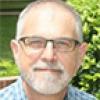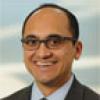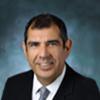| Date | Speaker(s) | Presentation Title Sort ascending |
|---|---|---|
| October 2016 | 
Alan G. Nyitray, Ph.D. |
The Epidemiology of Anal HPV in High Risk Men and Novel Opportunities for Anal Cancer Screening |
| April 2015 | 
S. Yousuf Zafar, M.D., M.H.S. |
The Elephant in the Room: How High Cost is Harming Cancer Care |
| February 2018 | 
B.R. Simon Rosser, Ph.D., M.P.H. |
The Effects of Prostate Cancer Treatment on the Sexual Behavior of Gay and Bisexual Men: Key Results from the "Restore" Study |
| May 2016 | 
Sarah Gehlert, Ph.D. |
The Effect of Social Influences on African-American Breast Cancer Patients |
| December 2015 | 
Norma Fox Kanarek, Ph.D., M.P.H. |
State Cancer Plans, Cancer Centers and Population Health: Tools or Toolbox? |
| April 2023 | 
Yelena Wu, Ph.D. |
Skin cancer prevention among young adults: The Risk Information and Skin-cancer Education for Undergraduate Prevention study |
| May 2016 | 
Nancy Krieger, Ph.D. |
Segregation, Jim Crow, Racism, Embodied History & the People’s Health: Implications for Cancer Registries, Research & Prevention |
| March 2018 | 
Philip E. Castle, Ph.D., M.P.H. |
Screening for the Prevention of Cervical Cancer: The Good, the Bad, and the Ugly |
| June 2018 | 
Nickolas Papadopoulos, Ph.D. |
Role of non-Invasive Tests for the Early Detection of Cancer |
| October 2018 | 
Amy Abernethy, M.D., Ph.D. |
Research at Scale: Rethinking evidence generation for the 21st Century |